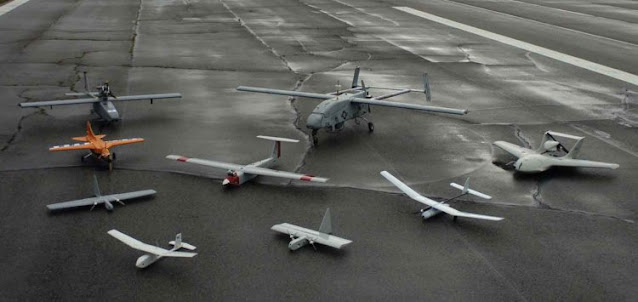 |
| Phohttp: www.reuters.com |
In a significant move, India has taken a decisive stance to enhance the security of its military drones by prohibiting the use of Chinese-manufactured components. Recent months have witnessed a pivotal decision by Indian authorities to bar domestic drone manufacturers from integrating parts sourced from China. This decision has been prompted by mounting concerns over potential security vulnerabilities, as highlighted by four prominent defence and industry officials. Their insights, along with a comprehensive review of pertinent documents by Reuters, shed light on India's strategic initiative.
This development unfolds
against the backdrop of escalating tensions between India and its neighbouring
nuclear power, China. As New Delhi continues to forge ahead with its
comprehensive military modernisation agenda, the employment of unmanned quadcopters,
long-endurance systems, and various autonomous platforms has gained prominence.
However, the focus on innovation and indigenous production is not without
apprehensions.
The crux of the concern rests
on the compromise of intelligence-gathering capabilities due to the
incorporation of Chinese-made components. Critical areas such as drones'
communication functions, cameras, radio transmission, and operating software
have raised red flags among security leaders. The potential for breaches and
data leaks originating from these components poses an alarming risk that India
is determined to mitigate.
Sources familiar with the
matter, including three individuals directly involved, revealed that anonymity
was essential due to the sensitive nature of the topic. India's defence
ministry has not provided an official response to these developments. The
extent of these measures, uncovered by Reuters in this exclusive report,
corresponds with the incremental limitations imposed on surveillance drone
imports since 2020.
This new approach is being
operationalised through military tenders, wherein Indian military officials
have explicitly communicated the nation's stance. During meetings held in
February and March, potential bidders were informed that equipment or subcomponents
originating from countries sharing land borders with India would not be deemed
acceptable. This stringent stance underscores India's commitment to
safeguarding its military technology from potential vulnerabilities.
The intricacies of these
measures are revealed in tender documents, which elucidate the presence of
"security loopholes" within such subsystems. These vulnerabilities
have prompted a call for vendors to disclose the precise origin of all
components, fostering transparency and accountability within the supply chain.
A senior defence official
provided insights into the subtle reference to neighbouring countries,
affirming that China is a primary concern. Despite these concerns, India's
dependence on China's economy has been undeniable, raising valid concerns over
cybersecurity. Beijing has categorically denied any involvement in
cyberattacks, and China's commerce ministry has yet to respond to India's
decisive actions.
It is notable that the United
States Congress had previously taken a similar stance in 2019, prohibiting the
acquisition and utilisation of drones and components manufactured in China by
the Pentagon.
In summary, India's resolute
measures to fortify the integrity of its military drones underscore the
nation's commitment to security and technological sovereignty. This steadfast
approach, characterized by stringent component-sourcing regulations, reflects
India's determination to ensure the confidentiality and robustness of its
defence capabilities.
Posting Komentar untuk "India Implements Stringent Measures to Safeguard Military Drone Integrity"